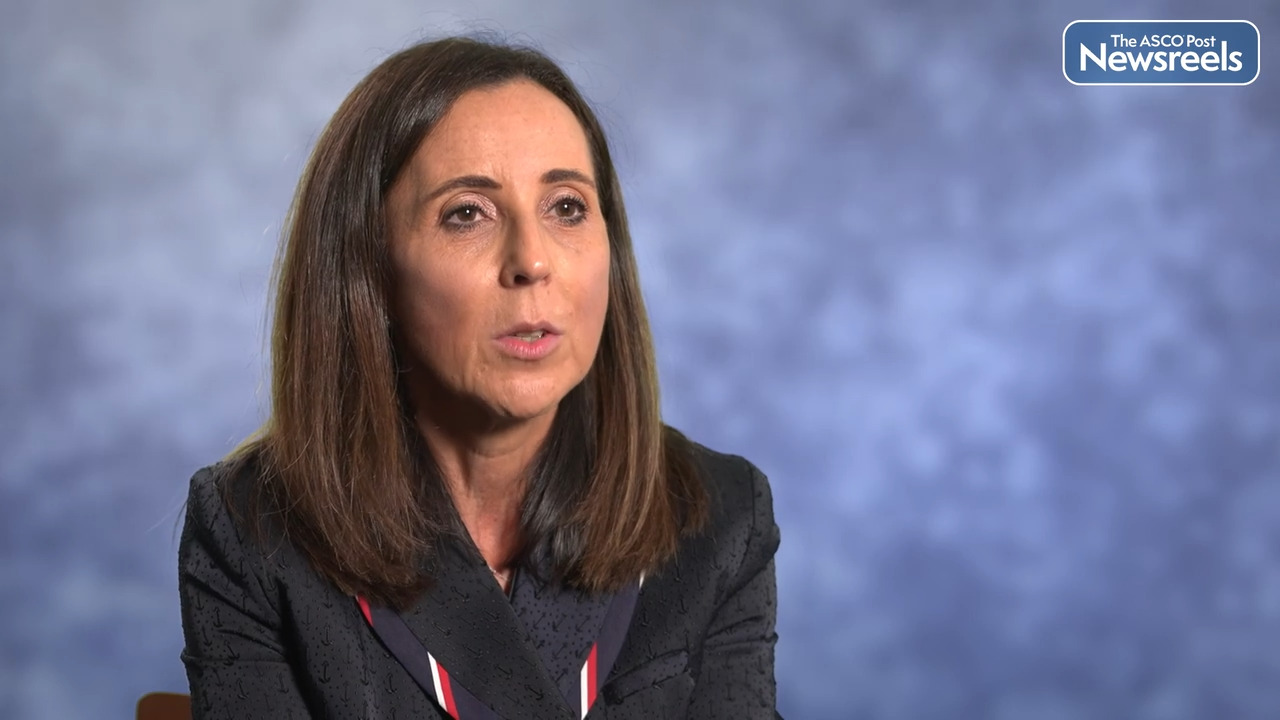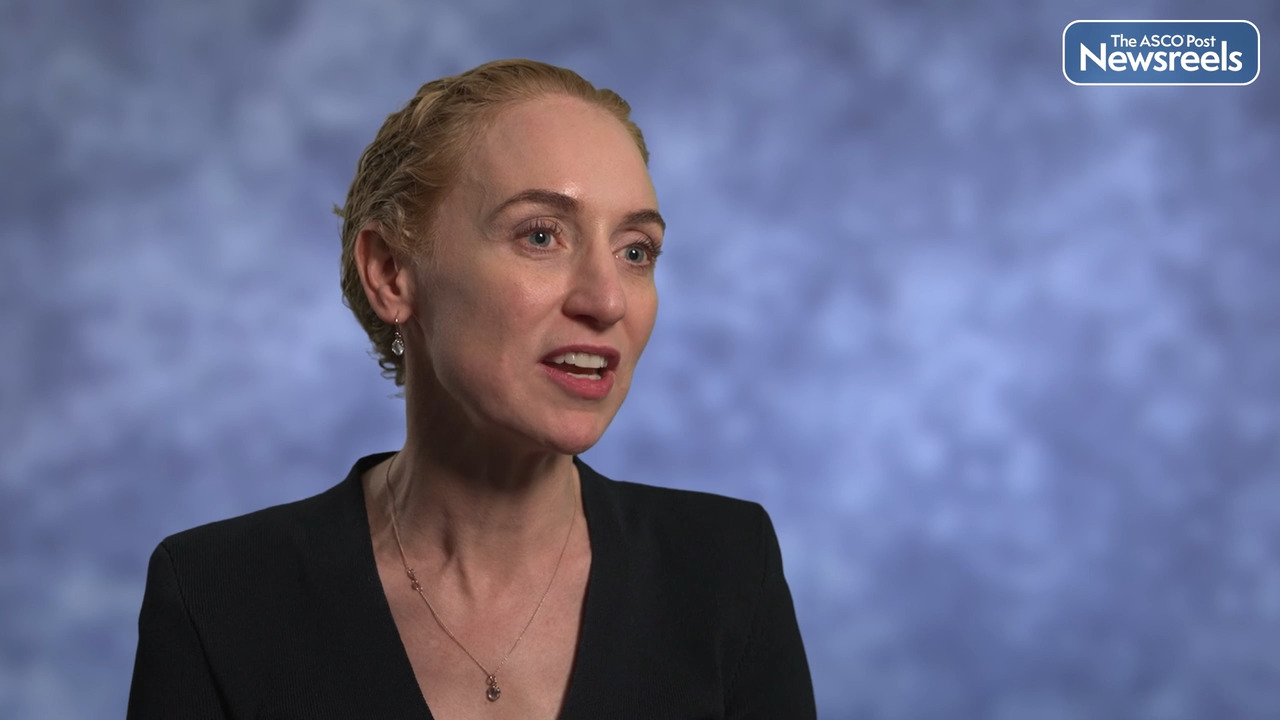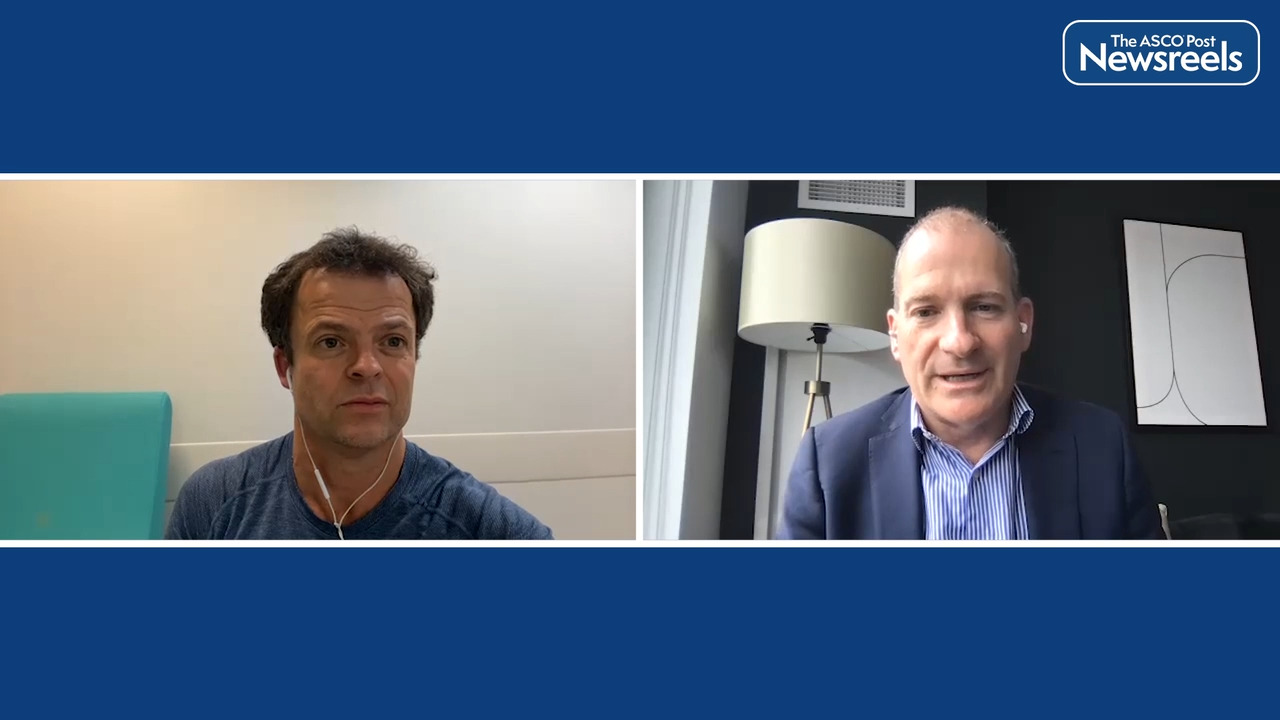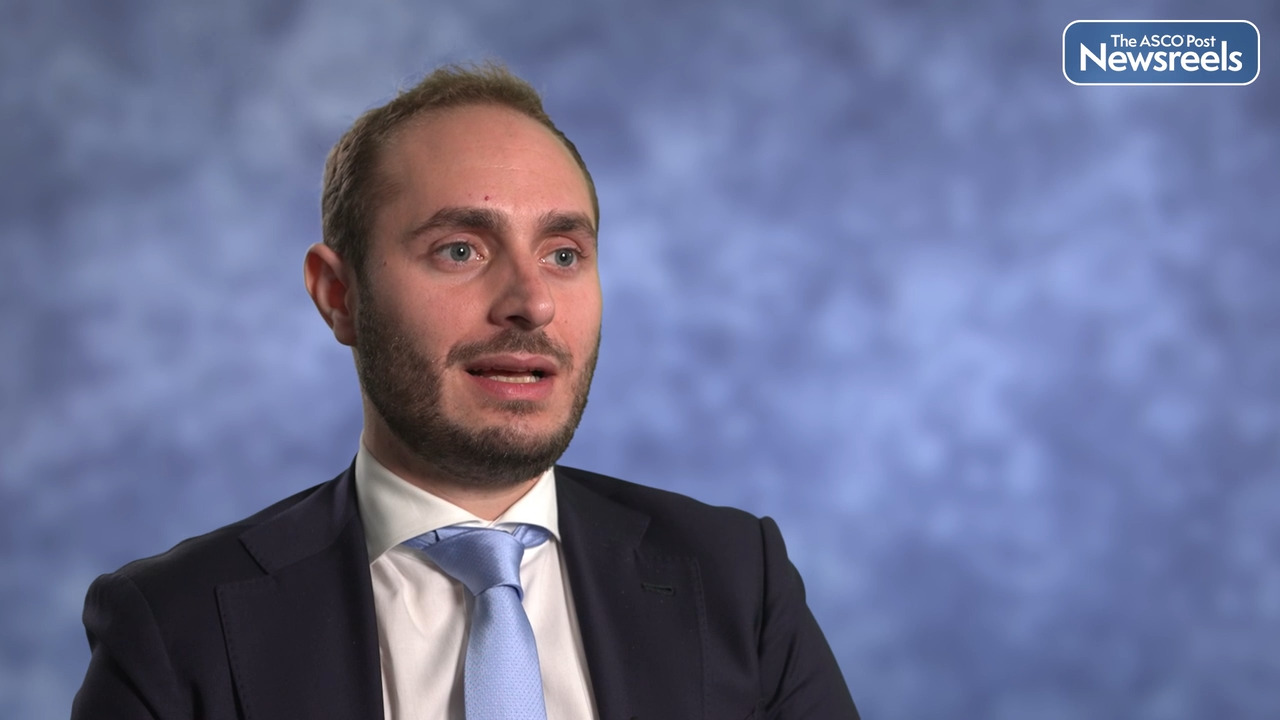Neal D. Shore, MD, on Prostate Cancer: Biomarker Analysis, Enzalutamide, and Active Surveillance
ESMO Congress 2022
Neal D. Shore, MD, of Carolina Urologic Research Center/Genesis Care, discusses new data from the ENACT trial, which showed that patients with prostate cancer and the RNA biomarkers PAM50 and AR-A were likely to have better outcomes with enzalutamide treatment. The results suggest that such RNA biomarkers may help to identify patients who may benefit from enzalutamide treatment compared with active surveillance (Abstract 1385P).
Transcript
Disclaimer: This video transcript has not been proofread or edited and may contain errors.
We published our results from the ENACT trial just a couple of months ago in JAMA Oncology. It was an interesting trial design. It was phase two, a little over 230 patients, one to one randomization; grade group one enriched and grade group two patients. Half the patients we continue to monitor in traditional active surveillance and the other half of the patients received full dose enzalutamide, the oncolytic dose for advanced prostate cancer patients. Our primary endpoints included progression, therapeutic progression based upon moving to active intervention treatments and PSA elevations. And then we also had biopsy key data at one year and two year. The patients received in the treatment arm, open label therapy with enzalutamide for one year. What we saw was a marked decrease in positive biopsy rates and a benefit to staying on treatment, on active surveillance when taking administering enzalutamide. More patients, in other words, who did not take the enzalutamide went on to active treatments.
Now I want to be perfectly clear because of some of the reaction and comments I saw from my colleagues that robust education on active surveillance is really important. But what we know is that many physicians and many patients have a difficult time staying the course of active surveillance. They go to treatment, surgery, radiation, focal therapies for a whole sundry of reasons, including PSA kinetics and concern about not doing something actively when there's cancer present. Our biomarker study looking at PAM50, luminal and basal components, as well as antigen receptor activation, as well as the Decipher score has now clearly demonstrated that we can have a prognostic benefit for patients who had high Decipher scores to know that they would go on to therapeutic progression, which was the endpoint of the ENACT trial and looking at AR amplification as well as the PAM50 luminal basal delineations, we can see, and our first author, Ashley Ross, senior author, Ted Schaeffer have clearly demonstrated that these RNA biomarkers are very informative.
So as we move towards more understanding of who would be a better candidate for active surveillance versus taking a treatment, I think these will be very helpful. I look forward to additional trials where we may dose adjust with the AR blocker. We may find different ways to administer the AR blocker, perhaps intraprostatic injection or perhaps different dosing, different dose scheduling. The bottom line I think, this RNA biomarker analysis is helping us to further inform physicians and patients regarding personalized decision making and fidelity to an active surveillance protocol and avoiding active treatments that may be more morbid and more costly.
The ASCO Post Staff
Ana Oaknin, MD, PhD, of Barcelona’s Vall d’Hebron University Hospital, discusses an analysis of long-term survival from the EMPOWER-Cervical 1/GOG-3016/ENGOT-cx9 trial. Cemiplimab-rwlc is the first immunotherapy to demonstrate an overall survival benefit as a second-line monotherapy for patients with recurrent or metastatic cervical cancer previously treated with platinum-based chemotherapy but not immunotherapy. The benefit was sustained in this population (Abstract 519MO).
The ASCO Post Staff
Nizar M. Tannir, MD, of The University of Texas MD Anderson Cancer Center, discusses phase III findings from the PIVOT-09 study, which compared bempegaldesleukin plus nivolumab with the investigator’s choice of a tyrosine kinase inhibitor (either sunitinib or cabozantinib) in patients with previously untreated advanced renal cell carcinoma (Abstract LBA68).
The ASCO Post Staff
Georgina V. Long, MD, PhD, of the Melanoma Institute Australia, discusses results from the CheckMate 915 trial, an analysis of the pretreatment circulating tumor DNA, along with other clinical and translational baseline factors, and their association with disease recurrence in patients with stage IIIB–D/IV melanoma treated with adjuvant immunotherapy (Abstract 788O).
The ASCO Post Staff
Thomas Powles, MD, PhD, of Barts Health NHS Trust, Queen Mary University of London, and Christopher Sweeney, MBBS, of Dana-Farber Cancer Institute, discuss two important phase III studies on renal cell cancer (RCC) presented at ESMO 2022: IMmotion010, which examined the efficacy and safety of atezolizumab vs placebo as adjuvant therapy in patients with RCC at increased risk of recurrence after nephrectomy; and CheckMate 914, which compared nivolumab monotherapy or nivolumab combined with ipilimumab vs placebo in patients with localized disease who underwent radical or partial nephrectomy and who are at high risk of relapse. (Abstract LBA4 & LBA66).
The ASCO Post Staff
Antonio Marra, MD, of Memorial Sloan Kettering Cancer Center, discusses a mutational signature analysis that reveals patterns of genomic instability linked to resistance to endocrine therapy with or without CDK4/6 inhibition in patients with estrogen receptor–positive/HER2-negative metastatic breast cancer (Abstract 210O).





